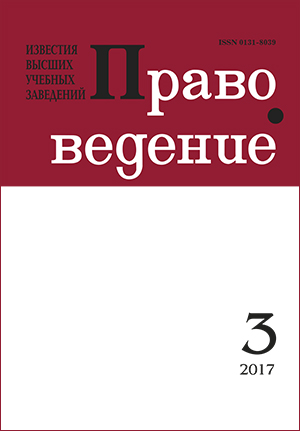Peculiarities of transition of the intellectual activity results to the public domain
Abstract
The article displays the peculiarities of transition of the intellectual activity results to the public domain. The specified legal regime in the current Russian intellectual property legislation determines the legal features of the second stage of the life cycle of works, performances, phonograms, radio or television broadcasts, inventions, utility models and industrial designs, selection inventions, and topologies of integrated microcircuits. Establishment of the public domain regime in relation to the intellectual activity results is caused by many factors. In particular, it is necessary to provide such results with the features of social significance and utility to the society as a whole and to its individual members after expiration of the legal protection. If the law does not establish an exclusive property right to the use of the intellectual activity results or if the statutory period of its validity is expired, the public domain regime is to be applied. The author identifies common and particular features that characterize the public domain regime of the intellectual activity results after their transition from the legal monopoly regime (exclusive rights regime). The general features typical for all intellectual activity results include, in particular, termination of the exclusive property right in respect of the intellectual activity result; preservation of the personal non-property rights of the author; gratuitous nature of the use of the intellectual activity result after its transition to the public domain; territorial nature of the public domain regime meaning that the transition of the protected intellectual activity result to the public domain in one country does not entail such a transition in other countries; irreversibility of transition of the intellectual activity result to the public domain which implies that the reverse transition of this result to the legal monopoly regime is unacceptable; possibility to freely use the intellectual activity result that has entered the public domain. However, this does not mean that the material medium which contains this result can be used freely as well. Particular features of the public domain regime are determined mainly in its comparison with the cases of free use (exemptions from the legal monopoly regime) envisaged by legislation as regards certain protected intellectual activity results. The author of the article detects certain shortcomings of the current regulation that establish the public domain legal regime and suggests options for their elimination.
Keywords:
legal regime, exclusive right, public domain, work, invention, utility model, industrial design, selection invention, topography of integrated circuit
Downloads
References
Downloads
Published
How to Cite
Issue
Section
License
Articles of "Pravovedenie" are open access distributed under the terms of the License Agreement with Saint Petersburg State University, which permits to the authors unrestricted distribution and self-archiving free of charge.




